Existing User Log In
New User Registration
Register for a free account to gain full access to the VGChartz Network and join our thriving community.



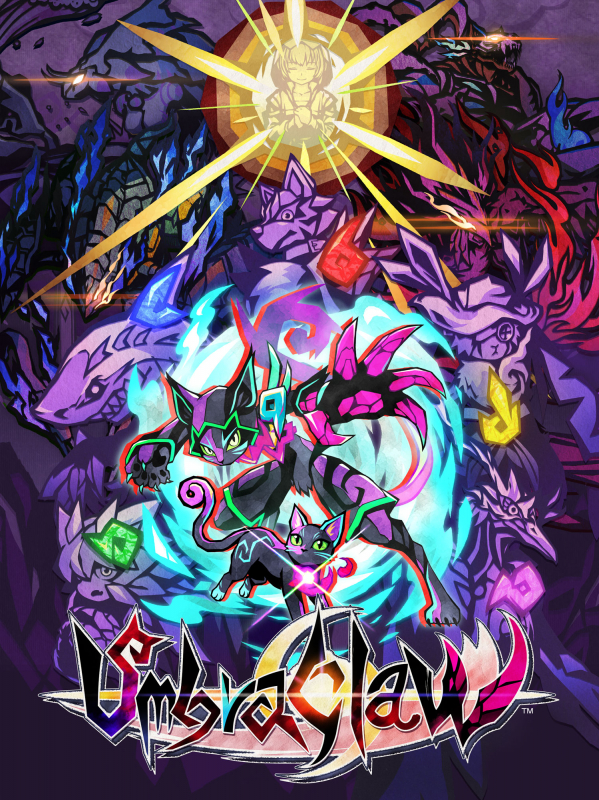

America - Front


America - Back

Inti Creates
Action
 (Add Date)
(Add Date) (Add Date)
(Add Date) (Add Date)
(Add Date)
| Owners: | 0 |
| Favorite: | 0 |
| Tracked: | 0 |
| Wishlist: | 0 |
| Now Playing: | 0 |
For over 20 years, Inti Creates has been one of the top contributors to the pixel platformer scene. Between 2002 and 2010, the indie studio accomplished great things for the Mega Man franchise via its partnership with Capcom. Then, starting in 2014, it entered its self-publishing phase, turning out fascinating action-platformers like Azure Striker Gunvolt, Blaster Master Zero, Bloodstained: Curse of the Moon, and, just last year, Gal Guardians: Demon Purge. The company's latest side-scrolling adventure is Umbraclaw, an atypical entry that experiments with a painterly aesthetic and death-saving mechanics.
Umbraclaw follows the house cat Kuon, who wakes up in the Soulplane — the land of the dead — after her premature death. Lost and unsure, she follows the instructions of a mysterious, disembodied voice that directs her to find the "boundary", the gateway between the Soulplane and the world of the living, so she can go home and reunite with her owner.
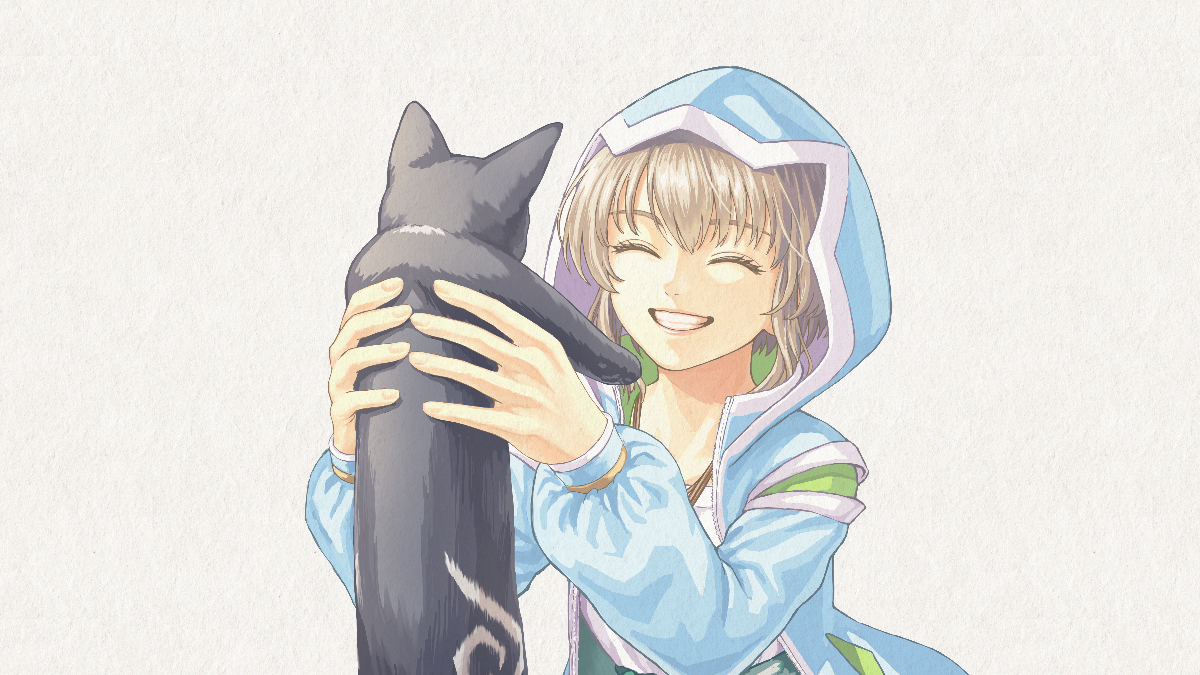
The premise in Umbraclaw is rich in potential. Anyone who's ever owned and loved a pet will immediately understand the emotions and stakes involved. Unfortunately, the premise never expands or evolves in interesting ways. There are moments when the game flirts with something deeper and darker, primarily when Kuon runs afoul of another lost animal who has lingered in the Soulplane too long and become corrupted by darkness, but overall it lacks imagination. Indeed, even if you get the "good" ending, there's a strange lack of closure.
The gameplay in Umbraclaw follows a similar tack: interesting on paper, but uneven in execution. Everything revolves around Anima Revive, a risk-versus-reward mechanic that bestows upon the campaign something of a rogue-like flavor. Here's how it works: Kuon, like any cat, has nine lives. If you lose all nine on your way to the boundary, it's a full level reset (or chapter reset, depending on the difficulty level). However, each time you lose a life you gain a new Anima form, to help you move forward and, hopefully, avoid further deaths. You might absorb the powers of a crow and gain a double jump. Or you might internalize the spirit of an elephant, which allows you to pluck dangerous projectiles out of the air with your spectral trunk.
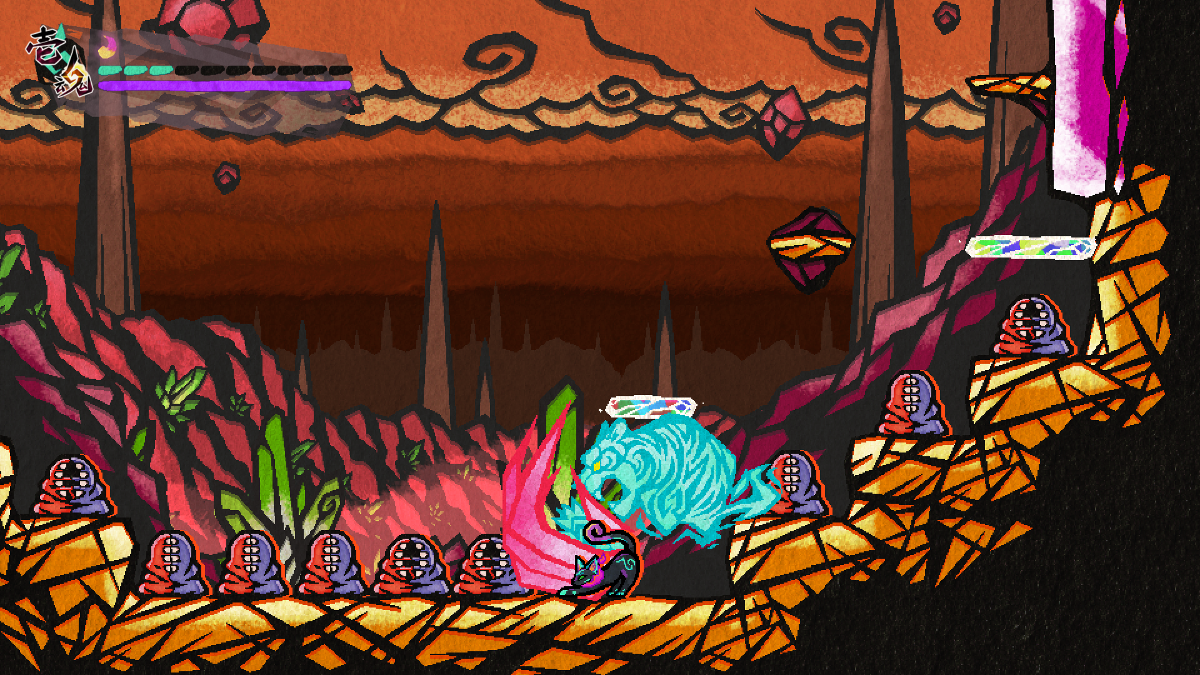
Anima Revive is an intriguing concept, one that would fit perfectly into a Metroidvania. Umbraclaw isn't a Metroidvania game, however, and doesn't really encourage you to gain these powers. Quite the opposite, in fact. If you want to remain as Kuon the lovable house cat, and get the "good" ending, you must avoid dying and gaining additional power-ups. Thus, the game is oriented around being under-leveled and under-equipped — again, an interesting idea in theory.
The results, though, are underwhelming. Because players need the option to survive each level and boss with just Kuon's basic moveset — move, jump, and dash — the level designs, enemy interactions, and boss battles are very plain. Stage layouts, while impressive visually, fall mostly on the boring side. There are a handful of engaging sections here and there, for example a stretch toward the end where Kuon can invert gravity and walk on the ceiling, but these are the exception, not the rule. Rarely does the game challenge the player to solve a problem or complete a feat of acrobatic derring-do.
Boss battles suffer a similar fate. Each boss deploys two or three telegraphed attacks to allow Kuon to dash through them, thus collecting enough energy to deal a fatal blow. They end up as unexciting, monotonous affairs where you spend most of your time waiting for the big bad to strike. You can die multiple times to get more offensive options in the lead-up to the boss, yes, but then you run the risk of a game over. And, really, you don't need to do that. The game is eminently beatable without sacrificing lives for animal power-ups.
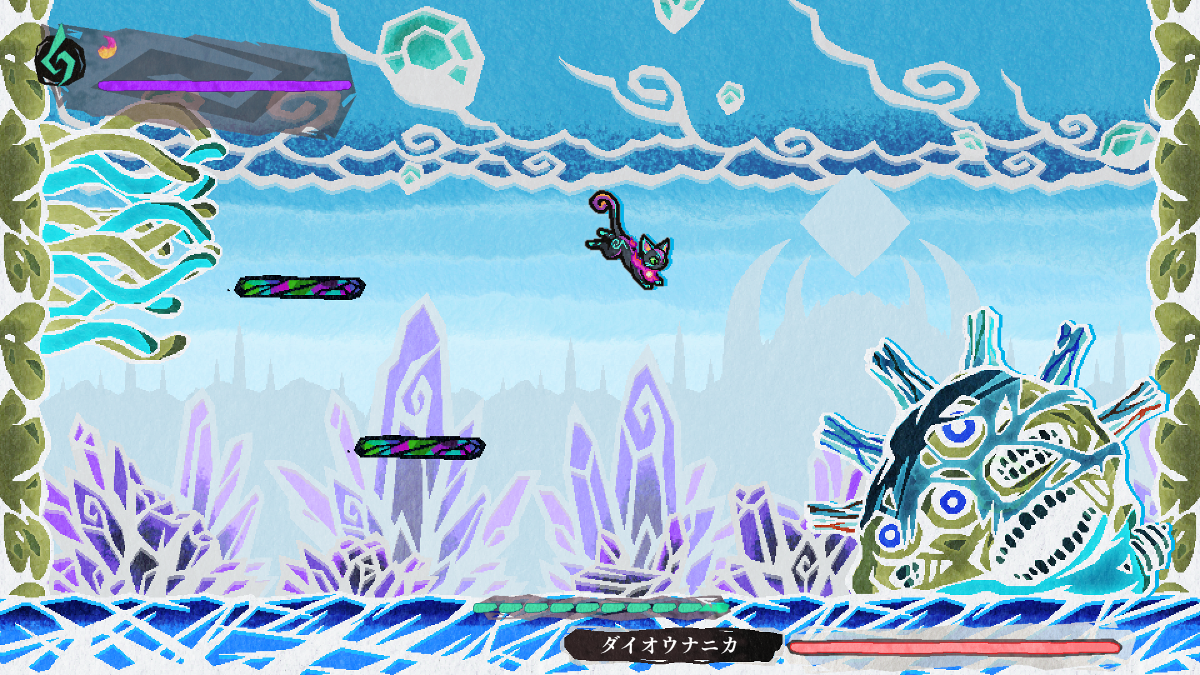
If you do find yourself struggling, however, the game kindly provides an upgrade framework to give players a helping hand. Using gems and "hope points" found in each stage, players can bestow several abilities or perks upon Kuon. These include stage maps, protective charms that absorb enemy attacks, upgrades to basic moves, and enhancements to all the various Anima abilities. This last category is arguably the least essential, particularly for players who aim to avoid dying.
No matter how many lives you lose, Umbraclaw is, unfortunately, a short affair. It should take only four hours to see the credits roll. On the plus side, though, the game boasts solid replay value. After you finish the campaign, and witness one of several possible endings, you can start a new game plus with all your unlocked upgrades intact. In addition, you can select from three different difficulty levels. The easiest, Eternity Mode, allows players to resurrect Kuon endlessly without fear of a game over. The "normal" difficulty, Anima Mode, will send Kuon back to the stage select area upon losing all nine lives. And the most challenging setting, Novem Mode, will reset your progress and return you to the beginning of the chapter if you die too many times.
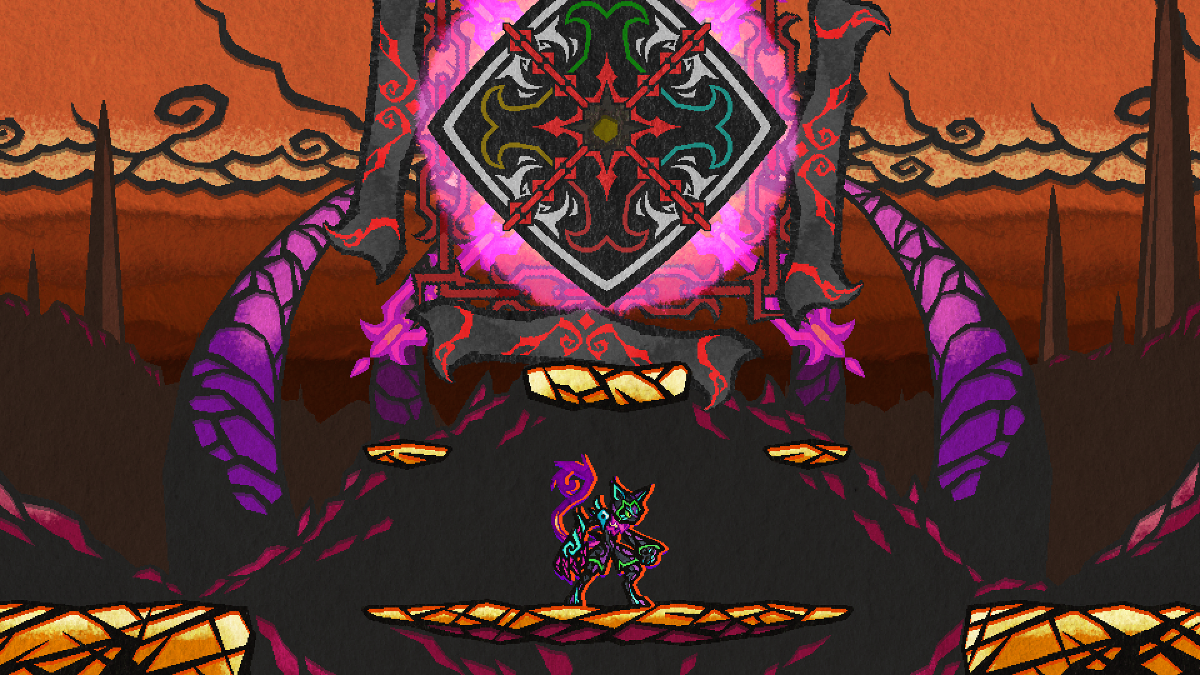
In addition to high replay value, Umbraclaw benefits from a striking storybook aesthetic that's simultaneously cartoony and macabre. The thick lines and deep, vibrant colors work wonders here. Moreover, many of the bosses, which appear as animals twisted by the darkness, are quite captivating, in a ghoulish sort of way.
On the audio side of the equation, things are more mixed. While some of the voice performances — particularly Christina Assaf-Costello as Kuon's owner Tsukomo — are good, others come off as stagy. As for music, it's fairly nice, although repetitive.
Inti Creates has made some great action-platformers over the last two decades, but Umbraclaw is not one of them. The idea of an under-equipped cat roaming the underworld in search for her owner is a great one, but it never makes the transition from page to screen. Because everything is designed around the abilities of a simple house cat, stage designs are far too simple and boss battles are disappointingly monotonous. While the game boasts high replay value and a lovely aesthetic, its core gameplay loop is too bland to recommend.









